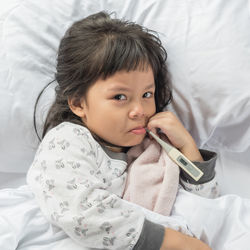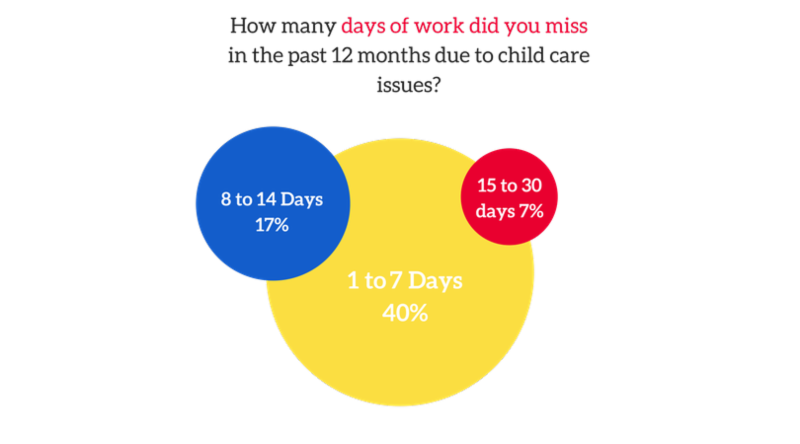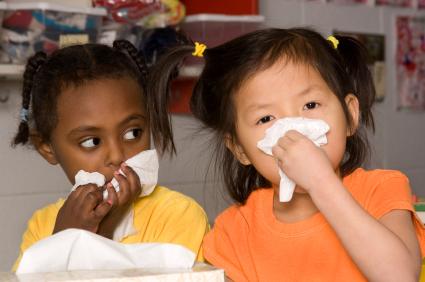Falling objects are a common cause of injury to children. Young children are often tempted to reach above their heads and pull objects down from shelves or bookcases. Televisions that are not secured, hot pots, plants, and other heavy objects can injure children. Placing heavy objects on lower shelves or securing them in position prevents these objects from falling on top of small children. Any items not intended for children should be inaccessible or placed in a room where children do not have access. Supervising children closely prevents many injuries.
Child Care Regulations cover this: Material & Equipment 417.5(n)(1)
Materials and play equipment used by the children must be sturdy and free from rough edges and sharp corners.
|
|
#2 Everyday
Prevention...
|

Actions that can help fight germs, like the Flu
What are everyday preventive actions?
- Try to avoid close contact with sick people.
- If you or your child gets sick with flu-like illness, CDC recommends that you (or your child) stay home for at least 24 hours after the fever is gone except to get medical care or for other necessities. The fever should be gone without the use of a fever-reducing medicine.
- While sick, limit contact with others as much as possible to keep from infecting them.
- Cover your nose and mouth with a tissue when you cough or sneeze. Throw the tissue in the trash after you use it.
- Wash your hands often with soap and water. If soap and water are not available, use an alcohol-based hand rub.
- Avoid touching your eyes, nose and mouth. Germs spread this way.
- Clean and disinfect surfaces and objects that may be contaminated with germs like the flu.
- If an outbreak of flu or another illness occurs, follow public health advice. This may include information about how to increase distance between people and other measures.
READ MORE
|
|
Tax benefits can help you afford a better child care option.
TO GET STARTED ask your provider to complete a W-10 form
and get a receipt for the child care you paid for.
We know that quality child care is expensive. There are several tax benefits and programs that can put more money in your pocket.
Tax Credits Your Employees Should Know About:
Child and Dependent Care Credit...
Earned Income Tax Credit (EITC)...
Child Tax Credit (CTC) for Working Families...
Free Tax preparation and assistance is offered through VITA (Volunteer Income Tax Assistance). A list of VITA providers can be obtained at your local IRS office, by calling 2-1-1 or on the www.irs.gov website.
|
A Parent's Perspective on Child Care
|

Westchester's Parents...
- 66% indicated that child care was an important part of their decision on where to work.
- 32% turned down jobs because of the lack of child care
- 53% cut back on household expenses to pay for child care
- 35% borrow money from family to pay for child care
|
|
Why Children Need to go Outside-
Even in the Winter!

We are in the middle of a cold and snowy winter. There are winter days that children should not play outside, but not all winter days! Let us explore the benefits of children going outside during colder months. Children who are dressed properly won't get cold. Adults who are dressed properly are more likely to go outside with children. In Minnesota, it is state law that all programs and schools - public and private - must take the children outdoors if it's at least 15 degrees. You can do it!
When is it too cold? Use the Weather Watch! It will tell you which age children can go outside at what temperatures.
It is an OCFS Regulation.
416.8(k) - 417/418.8(h) - Daily supervised outdoor play is required for all children in care, except during inclement or extreme weather or unless otherwise ordered by a health care provider.
Children who go outside in the winter are healthier.
Fresh air is healthier. We do not get sick from the cold. We can get sick from increased exposure to indoor environments where bacteria and viruses live. Adults and children who spend long periods of time in heated and poorly ventilated rooms without exposure to fresh air can easily pass germs to each other. READ MORE
Playing outside in the winter gives new challenges and problem solving opportunities.
Children need to develop their gross motor skills all year long.
Children use their bodies differently outside and when playing in snow. Children learn from encountering different challenges which the always changing winter weather offers them. READ MORE
Playing outside increases cognitive development.
Children who spend time outside improve their critical thinking skills. Studies link physical fitness and academic achievement.
Outside, children increase their observation skills. Just taking a walk outside can increase creativity. Inside environments tend to be the same for long periods of time. Outside environments change daily and stimulate the imagination. READ MORE
|

Flu is widespread throughout the nation, 30 children have died
This year's flu season ranks among the most severe in recent years. The flu is now widespread in 49 states according to the weekly flu report released by the US Centers for Disease Control and Prevention (CDC).
The flu is a contagious disease that easily spreads every winter, usually between October and May. It can cause mild to severe illness that may result in hospitalizations and at times can lead to death. Each year an average of more than 20,000 children under the age of 5 are hospitalized because of influenza complications. The Department of Health recommends that everyone six months of age or older receive flu vaccinations. Since the flu can spread through coughing or sneezing, it is also important that family members, and child care providers who regularly come into contact with children get vaccinated.
It's not too late to get the flu vaccine. The CDC recommends flu vaccinations for anyone that has not been vaccinated.
To learn more about Influenza symptoms and complications, click here
The CDC recommends a yearly flu vaccine for everyone 6 months of age and older. For the current guidelines,
click here
Take the following steps NOW to protect the health and safety of your child:
- You and your child should get the flu vaccine
- Encourage your caregiver and their staff to get the flu vaccine
- Your child care program should be encouraging all children and their parents to get the flu vaccine
- Follow everyday preventative actions
- Flu Guide for parents, click here
información de influenza en español
:
|
Did You Know...
The Council is Here for You!
|
|
Resources & Referrals!
Financial Help!
After School Care too!
Call us at
914-761-3456 ext 140,
or
Our FREE Services are:
- Consultation with a trained Counselor
- 24/7 search for child care
- Information to help pay for child care
- Guidelines to choose a quality child care program
- Resources to Camps
- Checklist for your visits
And much, much more... |
|
|
- Flu Prevention
- Get up and Go Outside
- $$$ in your pocket
- Fun family activities
|
|
What's happening at the Council
|
2018 Annual Awards Breakfast
Friday, May 18, 2018
8:00am-10:00am
Westchester Marriott
Tarrytown, New York
More details to follow in early 2018
Thursday, October 18, 2018
6:30pm-9:30pm
Captain Lawrence Brewery
Elmsford, New York
More details to follow in early 2018
Council Office Closing:
All Day
Monday, February 19, 2018
|
Be Entered to Win $100 Visa Gift Card
|
|
2018 Child Care Council's Public Policy Agenda
|
Our Vision:
Affordable, quality early care and education options that promote children's success in school and life, enable parents to work and advance in their careers, and provide a ready workforce for business growth.
to learn more!
|
February 26th is Tell a Fairy Tale Day
On February 26, spend time teaching your children about fairy tales. You can do this by reading them a classic fairy tale, using puppets to act one out, or by helping them create their own fairy tale!
Here are some great fairy tales:
- Goldilocks and the Three Bears
- The Three Little Pigs
- The Frog Prince
- Jack and the Beanstalk
- Thumbelina
- The Princess and the Pea
- Rapunzel
- The Tortoise and the Hare
- Lion and the Mouse
|
Baby Lap Time
When
: Monday, February 26th 11:00am to 12:00pm
Where: Katonah Village Library
Cost: Free
|
Babyccino With Bobby Doowah
When
: Friday, February 9th, February 16th, February 23rd at 10:30am
Where
: Chabad of the Rivertowns, Dobbs Ferry NY
Cost
: Free
For more information click here
|
Click below to see a full list of
White Plains Parent Skills Coaching
En Espanol: Entrenamiento de Habilidades para Padres
January to March
Enero a Marzo
(914) 995-5238
Peeksill Parent Skills Coaching
En Espanol: Entrenamiento de Habilidades para Padres
Febuary to March
Febrero a Marzo
(914) 739-4725
Yonkers Parent Skills Coaching
3/6/18 to 4/10/18
(914) 964-2063
Mount Vernon Parent Skills Coaching
3/3/18 to 3/17/18
(914) 667-9369
Family Empowerment Advocacy Series
2/28, 3/21, 4/16; Hudson Valley DDSO 220 White Plains RD, Tarrytown
|
 |
Spaghetti Squash and Cheese

INGREDIENTS
- 5 1/2 cups cooked spaghetti squash (from about 2 small) See directions below
- 1 tbsp butter
- 1 tbsp olive oil
- 1/4 cup minced onion
- 1/4 cup flour
- 2 cups skim milk
- 1 cup fat free chicken broth or vegetable broth
- 2 cups (8 oz) Sargento 2% reduced fat mild cheddar
- salt and pepper, to taste
- 1/8 cup grated parmesan
- 4 cups (about 4 oz) baby spinach
DIRECTIONS
1.
Preheat oven to 375F
2.
Cut the squash in half lengthwise; remove and discard seeds. place squash on baking sheet cut side down. Bake until tender, about 1 hour.
3.
Separate the strands of squash with a fork and place in a medium bowl: discard shells. Squeeze out any excess liquid from squash if watery.
4.
Maintain the oven temperature.
5.
Heat butter and oil in a large saucepan over medium heat. Add onions and cook about 2 minutes.
6.
Stir in flour. Reduce heat to low and cook, stirring continually 3-4 minutes.
7.
Add milk and chicken broth and continue whisking, raising heat to medium-high until it comes to a boil and becomes smooth and thick, about 2 minutes stirring; season with salt and pepper.
8.
Once it becomes thick, remove from heat, add cheddar cheese and mix well until cheese is melted.
9.
Adjust salt and pepper to taste, add cooked spaghetti squash and baby spinach, pour into a baking dish and sprinkle Parmesan cheese on top.
10.
Bake until bubbly and golden 25 to 30 minutes.
Enjoy!
|
 |
 |
 |
|
 |
|